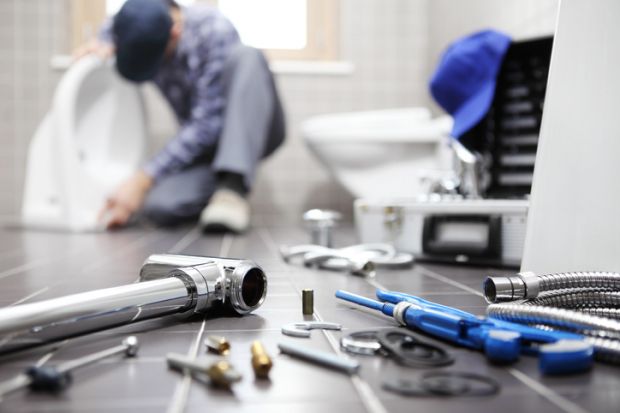Like many others, the Covid pandemic abruptly made me a homeschool teacher crammed around a makeshift classroom in my basement. Suddenly, I was teaching two primary school-age children maths, geography, reading and writing.
I outsourced what I could (all the French) but soon learned that some concepts needed my full attention. How hard is it to teach fractions to a nine-year-old? Turns out, it’s not that easy. It involves pizza slices. And invokes tears.
I had to teach my daughter what I had forgotten about fractions (and taken for granted) and not teach her the simple rules I remembered. My first attempt was to teach the rules: “When the denominators are the same, you can add them.” This didn’t help. She needed to learn the concept of a fraction.
This is really no different in higher education. I don’t want to compare my engineering students to nine-year-olds, but when teaching, we occasionally need reminders of the conceptual knowledge we take for granted − and start there.
Now for the plumber. My well pump recently stopped working reliably. I called the local plumber, who promised to be at my house the next day. Tomorrow came and went, as did several rescheduled appointments and no-shows.
Eventually, my calls were elevated to the owner who, much to my surprise, expressed no concern for my frustrations, and instead just promised to sort it out − tomorrow. This time the plumber showed up and the problem was fixed both professionally and efficiently. I thought: “How did he prevail with such disregard for his customers?”
The simple answer is that he did professional and efficient plumbing. He relies on good plumbing instead of careful attention to scheduling or customer service. I’m OK with this. I don’t need warm and fuzzy. I just want my water to flow. I also realised, however, that I didn’t want to become jaded in my vocation and maybe I already was.
THE Campus resource: using student feedback to experiment and adjust online instruction
As a teacher, I was always a good one. My reviews were solid, occasionally I won awards and, all in all, my students were happy. I’d been at it for eight years, and I’d learned to become more efficient, clear and concise. But I’m not sure if I was, overall, becoming a better teacher. And in reflecting on my teaching using the plumber as my lens, I realised that I was becoming jaded.
My courses were “professional and efficient”, but I was becoming less concerned with the student experience. I was less bothered when I had to cancel office hours, less bothered when I found a mistake in my slides, less bothered when students complained, less bothered by students’ worries.
And while I think some degree of non-botheredness is healthy, I was starting to find keywords missing from my teaching evaluations. Students used to say I showed “compassion, understanding and flexibility” – now they were simply saying I was organised and used my class time effectively. Not bad things, just lacking the truly rewarding elements.
The disruption of Covid allowed me to start again and provided a literal new platform to reinvent myself as a teacher. Students were learning to learn online and struggling to set priorities to use their time effectively. The ability to watch and re-watch lectures is good for learning but hugely time-consuming. As a result, lectures needed to be focused, concise and as uplifting as is possible from my basement lecture-capture “studio”.
I thought of teaching my daughter fractions and used that experience to streamline lectures. I considered every module carefully: What was the point? Why was this important? What was the concept that students needed to understand?
Online learning also abruptly made students more responsible for their own time management. Brightspace learning management system, of course, announces quiz dates, due dates for assignments and the like, but the reliable weekly routine of lecture-seminar-lab in physical classrooms was gone. Helping students to adapt to this change requires organisation from the instructor but also, and perhaps more importantly, requires instructor flexibility, understanding and compassion.
My “run-in” with the plumber happened just in time. He made me realise that being just a “professional and efficient” teacher wasn’t going to cut it during this time of transition. I needed to return to teaching fundamentals. I needed to be available, reliable, in full communication and genuinely concerned for the student experience.
My course evaluations are in, and they are the highest I’ve ever achieved. Much higher than last year, much higher than my comparison groups and much higher than the university average. More importantly, “empathetic, understanding and reasonable” have reappeared as comments.
The move online has introduced real challenges for students and faculty, but excellent teaching is not really about adapting to these technologies. It’s not about fitting our material into a new medium, and it’s not about learning the rules governing teaching remotely. Like fractions, it’s the fundamental concepts that we need to remember.
Peter Vanberkel is an associate professor in industrial engineering at Dalhousie University in Nova Scotia, Canada. He teaches undergraduate and graduate courses in industrial engineering and strives to design better healthcare operations using operational research.
Register to continue
Why register?
- Registration is free and only takes a moment
- Once registered, you can read 3 articles a month
- Sign up for our newsletter
Subscribe
Or subscribe for unlimited access to:
- Unlimited access to news, views, insights & reviews
- Digital editions
- Digital access to THE’s university and college rankings analysis
Already registered or a current subscriber? Login










